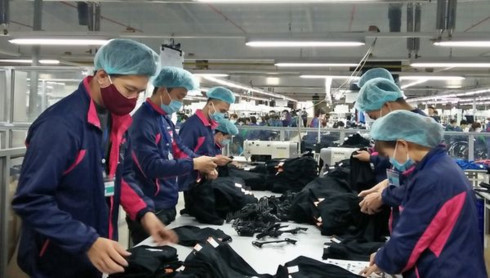 |
The intermediary payment market is entering the next period of reshaping with a rising number of large businesses engaging in e-wallet and acquiring unprofitable startups and fintechs, VnExpress reported.
Thriving e-wallet market
VinID, an arm of Vietnam's largest private conglomerate Vingroup has completed the procedures to take over the share of People Care, which owns MonPay e-wallet, after replacing all members of its executive board in 2018.
In the same year, Grab Vietnam had representatives at the management board of Moca, an intermediary payment fintech. GrabPay then was renamed to GrabPay by Moca.
Actually, Moca or MonPay is just two among a number of fintechs which have welcomed a wave of new partners.
According to some experts, the moves may take the market to a more competitive stage.
“The joining of new players is a good signal as they can see potential of the intermediary payment market and the customers’ demand is on the rise”, VnExpress cited Momo’s Vice Chairman Nguyen Ba Diep as saying. MoMo was one of the first e-wallet service providers in Vietnam.
As of the end of 2018, Vietnam was home to 4.2 million e-wallets linked to bank accounts. Total transaction value rocketed to over VND9.1 trillion (US$3.9 billion), however, this number is quite humble compared to the market potential.
Both the firstborns namely Momo, Bankplus, Mobivi and Vimo and the newcomers including AirPay, ZaloPay, Vi Viet are fiercely competing to grasp the share in the intermediary payment market, in which only the bold spenders take the upper hand, no matter whether you are the first or second in joining the market.
Market share comes at a cost
According to Buzzmetrics’ research, users' interest mainly focused on four e-wallets namely Momo, Viettelpay, Zalopay and Airpay, which dominate more than 90% of the transactions.
However, the social media analyst revealed the main reason for using the e-wallets is attractive promotion programs.
The research showed that 25% of the respondents said they turned to e-wallets for big discounts offered by the providers’ promotion programs while others do it just as shopping online habits.
This explains why most of intermediary payment service providers in Vietnam are running at a loss.
Only 20% of them are able to make profits from transactions via e-wallets and earnings of the remaining are unstable, according to Director of the Payment Department under the State Bank of Vietnam Pham Tien Dung.
He also noted that the losses that startups and fintech businesses suffer are predictable, especially when they are willing to trade-off profit for market share.
For instance, Zion Limited Company, a member of VNG Corporation, was licensed to provide intermediary payment service from the beginning of 2016 with the ZaloPay e-wallet.
However, after two years of operation, the business is run unprofitably, with loss of over VND21 billion (US$901,000) in 2017 and over VND133 billion (US$5.7 million) in 2018.
Momo e-wallet, which leads the payment market in number of users, saw its accumulated loss of over VND1 trillion (US$43 million) by 2018 and its loss is increasing at a rate just approximately equal to that of revenues.
Opportunities for new players via M&A businesses
For large enterprises in the roadmap to develop their ecosystem, owning payment platforms is a matter of time.
In fact, most of the businesses investing in intermediary payment already have their own ecosystem. Grab, the first ride-hailing firm entering Vietnam in 2014, has expanded its business to other services including package and food delivery.
VinID, a service owned by Vingroup, is used to pay for products and services within the conglomerate’s ecosystem such as shopping, health care, education, entertainment, among others.
Another reason for joining a payment platform is the capacity of reshaping the market.
Due to the on-going small scale, the intermediary payment market is considered fragmented and there is not a chance a company can attract a majority of customers.
Therefore, each e-wallet is targeting a separated segment in the market. Momo conquers users with promotion programs, Viettelpay is usually used for banking transactions and Airpay for food delivery payment, according to Buzzmetrics.
The trend opens more opportunities for giants with enormous financial resources to become the leaders. However, this competition itself, as well as e-commerce, is predicted to be cutthroat. Hanoitimes
Ha An
 The market is open to giants with enormous financial resources to become the leaders. However, this competition itself, as well as e-commerce, is predicted to be cutthroat.
The market is open to giants with enormous financial resources to become the leaders. However, this competition itself, as well as e-commerce, is predicted to be cutthroat.